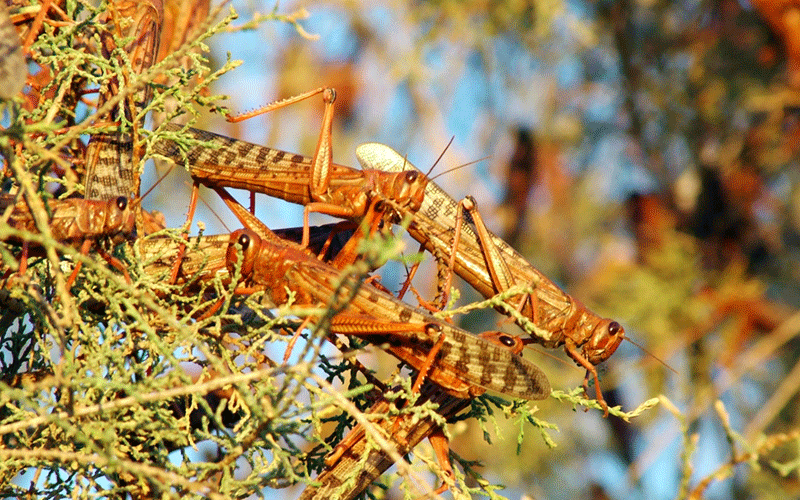Munya allays food insecurity fears as locust attack spreads
By Bernard Gitau, March 11, 2020Desert locusts have invaded at least 26 counties, Agriculture CS Peter Munya said.
He, however, allayed fears of an imminent food insecurity threat due to the invasion by the destructive insects, saying a sizeable portion of swarms was composed of egg-laying locusts which are less destructive.
“Some of the swarms are in that stage of laying eggs and are very inactive in terms of feeding, and, therefore, not destructive like the younger swarms,” said Munya.
He said in Kajiado, Machakos, Makueni, Nakuru and Bungoma the locusts were “just visiting” before moving out as he accused Kenyans of abetting the spread of the insects by scaring them away once they land in their area.
“Part of the problem of the spread was when the initial swarms came and were sprayed, they split into small swarms and when the farmers spotted them they scared them away,” he said.
He was speaking at Wilson Airport in Nairobi where he had gone to launch three specialised aerial spraying planes from South Africa.
“The planes are already in Mombasa but the weather was not conducive for them to fly. We hope by tomorrow we will be able to launch them and also kick-start a public sensitisation campaign on locust control capacity,” he said.
So far, the government has spent Sh230 million and an additional Sh300 million has been released to buy chemicals, bringing the total to Sh530 million.
In terms of aerial spraying capacity, Munya said they have nine planes, three for surveillance and six for spraying sourced from KWS, KFS, Air Force and FAO among other organisations.
Munya said the next phase of invasion is expected in the next two weeks when the locusts that did not die during spraying will be maturing.
“We are concluding the purchase of vehicles through FAO that will also be mounted with motorised sprayers that will also be deployed in three days to enhance ground spraying,” he added.
The CS also said most of the swarms are inactive and less destructive.
Laying eggs
“Most of the egg-laying locusts are in distress looking for conducive places that they can lay eggs,” he said.
He said the epicentre of the invasion include Marsabit, Isiolo, Samburu, Turkana and Garissa.
In food basket, only Kitui and Tharaka Nithi counties are heavily affected.
Chemicals effect is temporary where after a day of spraying livestock can graze and people eat vegetables or other crops.
“But we are avoiding the situation of aerial spraying in densely populated areas hence we are using hand spraying or motorised spraying. These are chemicals approved by FAO who are the custodians of agricultural chemicals and are accepted internationally,” he said
“Scientifically the chemicals have a temporary effect, but not permanent, they are light only dealing with targeted microorganism and are not supposed to kill unintended ones,” he added.
More Articles

